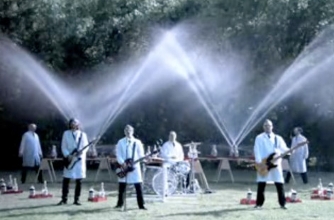Written by Matthew Harper.
Have you ever considered that the diet soda you’ve been chugging is actually just a can of sugar-free sadness? “No, no I haven’t,” you’re whispering oddly to yourself — and with good reason! Such an idea seems preposterous. However, there are scientists who are looking into a possible link between diet drinks and depression.
According to NBC News Health, “a new study finds that people who drink diet sodas or fruit drinks are more likely to be diagnosed with depression.” It’s very important to note, though, that the study doesn’t actually say that the depressed folks’ drinks of choice are the cause of their depression. The study merely shows that those who favor those drinks are more often found to be depressed. One wonders, then, if maybe some sad people just want a nice Coke Zero to cheer them up!

Talking to BBC News, Gaynor Bussell of the British Diabetic Association was quick to point out that the study isn’t saying that the diet drinks or the artificial sweeteners within are the cause of the depression. She also stated that “it may be that drinking ‘diet’ drinks is a marker for obesity or diabetes which in themselves can cause depression,” which is a very good point to keep in mind when analyzing this new study. Bussell says that the research could be affected by people wanting to blame their depression on the diet drinks, too. “People who suffer from depression may latch on to the idea that it is their sweetened beverages that caused it and so add a bias to their reporting of past intake, especially as ‘soda’ in the US is demonized even more than in the UK,” she said.
The lead researcher behind the study, Dr. Honglei Chen, says that the “research suggests that cutting out or down on sweetened diet drinks or replacing them with unsweetened coffee may naturally help lower your depression risk.” However, many are questioning that, as, again, the study doesn’t actually show in any way that the diet drinks are what’s causing the depression. Additionally, the study looked only at a somewhat specific group: Americans in their fifties, sixties, seventies, and eighties. This means that the results of the study might not apply to any other populations. The study did take outside factors into account, such as education level, smoking, sex, and body mass index, but it didn’t account for things such as stress factors or a family history of depression (NBC News Health).
The study will be presented at the annual meeting of the American Academy of Neurology. The study purportedly found that people who consume a large amount of “diet fizzy drinks” or artificially-sweetened fruit juices may be increasing their chances of being diagnosed with depression by about a third. Conversely, their study finds that regular coffee drinkers are actually less likely to be depressed. Perhaps people hopped up on all that caffeine are happier than those trying to avoid it.































